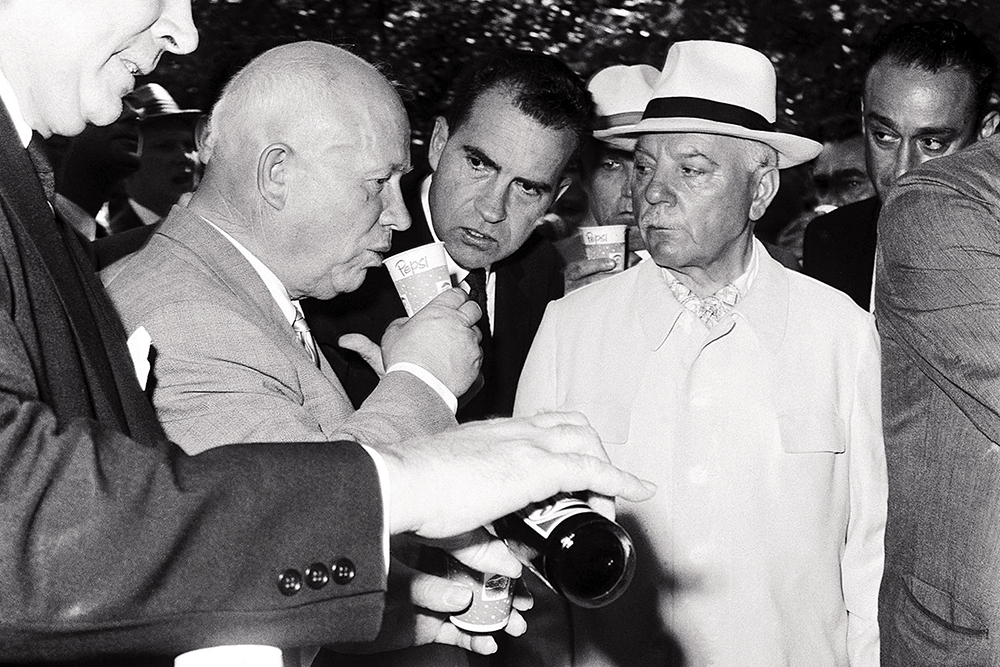
- Moscow, July 1959. Months after the preparation of an exhibition on the USSR in New York, the United States National Exposition was organized in the capital of the Soviet Union, with the aim of tempering the Cold War a little. The first secretary of the Communist Party, Nikita Khrustschev, was exalted by the summer temperatures in Moscow or, perhaps, by the grave loquacity of the words of Richard Nixon, Vice President of the United States. United States and exposure driver.

The fact is, Khrustschev came sweaty to a Pepsi booth and the Vice President of Soda Marketing, Donald Kendall, didn't waste the opportunity. He took the glass of Pepsi and offered it to the Soviet leader. According to Time magazine, the Soviets gave a “skeptical” drink to the soda. That's where the idium between Pepsi and the Soviets began.
Donald Kendall was appointed President of Pepsi in 1963 and Nixon of the United States in 1969. From that concentration in Moscow, Kendall had a project in his head: Pepsi was the first foreign product to be sold in the USSR (and, if possible, the only one). After years of negotiations, he signed the agreement with the Soviets in 1972. But since the ruble could not be changed in the international market, how would the Soviets pay for capitalist soft drinks? Through Countertrade or Compensation Trade, the exchange would be made with another drink. Pepsi Stolichnaya would become the sole importer of vodka on the US market. And two years later, the first Soviet Union Pepsi factory was launched in Novorossiys.
In the 1980s, a special relationship entered into crisis. The Olympic Games were held in 1980 in Moscow, and their exploitation rights belonged to Coca-Cola since 1924. In addition, on 23 January 1985, the Soviet authorities authorized the marketing of Pepsi's main competitor, even if it was only for sale to tourists.
To avoid consumer promiscuity, Kendall met with the Soviets and signed a new agreement in 1989: Pepsi received seventeen war submarines, a cruise ship, a frigate and a destroyer. Thus, the USSR washed the marine obsolete and Pepsi became the sixth military power in the world in the number of submarines. Donald Kendall is said to have told Brent Scowcroft, his father's security advisor, Bush: “We are disarming the Soviet Union faster than you are.” This situation, of course, only lasted a few days, as the packaging was sold to a Swedish company dedicated to the recycling of scrap.
Finally, Perestroika broke the pair in the early 1990s, and Coca-Cola is now overflowing in the markets of the former Soviet Union Pepsiri.